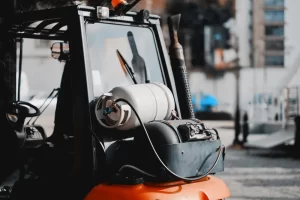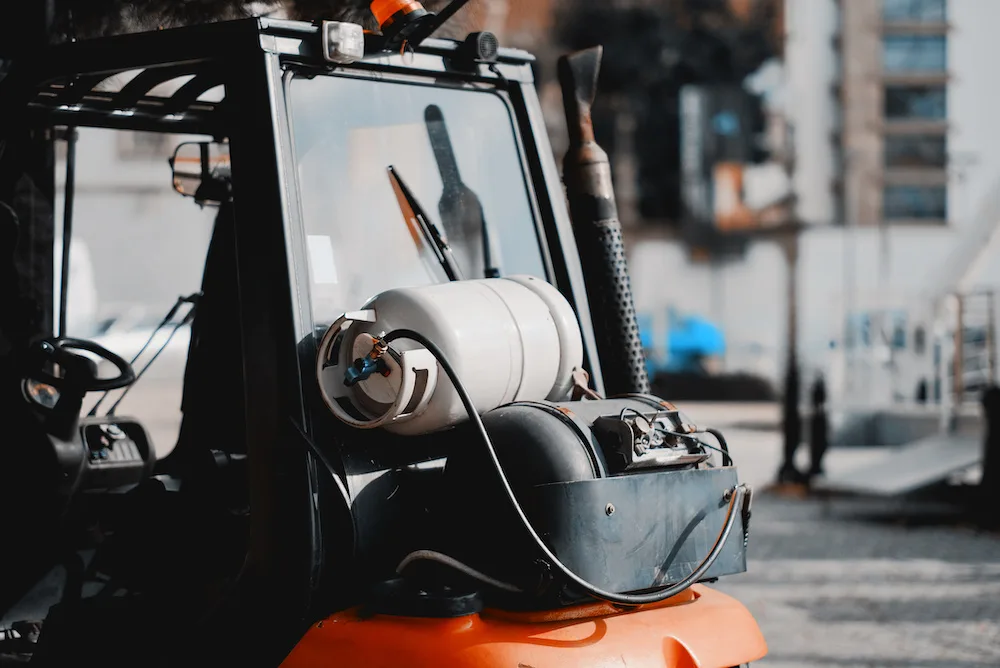 Banning Propane Forklifts Just Doesn’t Make Sense
Banning Propane Forklifts Just Doesn’t Make Sense
For decades, propane-powered forklifts have been the go-to technology for American business and economic movement. These carefully crafted machines move everything from shipping containers to materials and commodities for multinational corporations to local “mom and pop” businesses. They keep it all moving and meeting deadlines in a cost-effective and low-emissions manner.
But recent events are placing that workhorse status in jeopardy. In June, the California Air Resources Board (CARB) passed a new regulation that the state will phase out spark-ignited forklifts — including propane models — in favor of zero-emission alternatives, i.e., almost exclusively electric forklifts.
This effort, while seemingly noble on the surface, doesn’t account for almost assured higher costs and disruption of American business and economic movement that could result. These implications will be felt well beyond California, particularly in the dozens of states that follow California’s lead in such matters, either implicitly or legislatively.
There is a bigger picture to consider. Propane forklifts cannot be removed from the flow of business without consequences. And those consequences will likely be felt by end-user consumers from coast to coast, as higher costs for electric forklifts are passed on to them.
Propane Forklifts Do It All
By some estimates, there are about 750,000 propane forklifts operating across North America. That’s a substantial amount, but consider that in relative terms, the propane forklift is a recent development. The first propane-powered models appeared in the mid-1950s and quickly established themselves as indispensable to business.
Fast forward 70 years, and enter, for example, a lumber yard. There, you will see rubber-tired propane forklifts moving quietly and almost effortlessly on rough terrain to move materials necessary for a number of applications, like home construction. Or enter a massive distribution center, where forklifts operate both inside and outside the facility. Only a propane forklift can move seamlessly between the two environments. Often, an electric forklift can’t handle the rough terrain you find outside, and diesel or gasoline forklifts can’t enter the facility due to the harmful emissions they produce.
According to Colin Sueyres, president and CEO of the Western Propane Gas Association, roughly 40% of the market in California is using electric forklifts. There are a myriad of operations — large and small companies, construction nonprofits, retail outlets and many, many others. It’s true that propane forklifts are a great option there, but electric forklifts can do the job as well.
But what if there is a facility where there are high-lift demands, or a logistics operation running three eight-hour swing shifts? In some use cases, Sueyres said, there is no electric forklift available on the market that can do what a propane model can do. And that doesn’t begin to cover the increased cost of an electric forklift and battery chargers, nor the cost (and hassle) of connecting the chargers to the electrical grid.
Unintended Consequences of Bans
That’s the paradox of the CARB regulation, which essentially means manufacturers cannot produce or sell Class IV and Class V spark-ignited forklifts for use in California starting in 2026. That includes propane models, but also gasoline- and natural gas-powered units. The regulation would also require the early retirement of those forklifts.
Does this make sense, though, particularly from the macro view? The regulation will mean that many operations will have to buy and deploy multiple electric forklifts to do the work of one propane forklift. This will place financial stress on businesses, a cost that could be passed on to consumers, thus increasing inflation. According to Sueyres, this is one of the many unintended consequences of the regulation.
But another unintended consequence is that some businesses will simply find it too costly to do business in California and move to an adjacent state, like Nevada. That can affect job creation, which impacts the economy as a whole. Of course, some businesses could simply fold, exacerbating the jobs issue important to so many politicians. Others could decide to, in effect, break the law by operating propane forklifts anyway.
Now, multiply this situation by dozens of states that follow California’s lead, in essence saying that whatever that state does as far as emissions, we will do the same. The unintended consequence might be a run on electric forklifts, which will drive up the price on individual units.
The Bigger Picture
The key is that propane forklifts do the job, do it well, do it safely, do it cost-effectively and do it with low emissions. To attempt to remove propane forklifts from California, or any other state, doesn’t take into account the bigger picture — the state of jobs and the economy as a whole.
Click here to view the original article.








